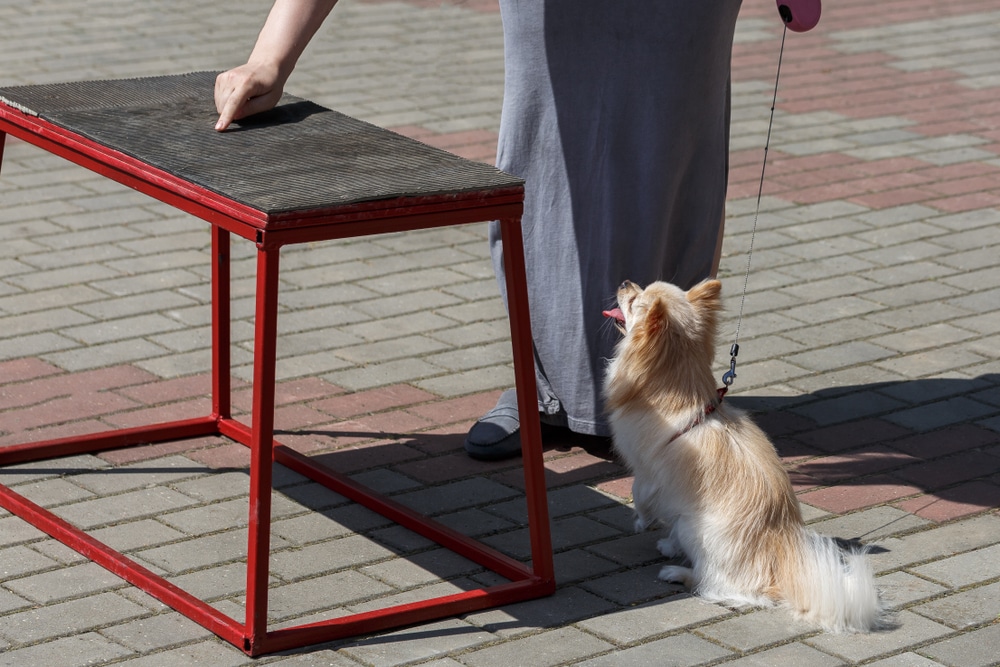Many times as owners we have found ourselves in a situation where we need our dog to listen to us, but it simply ignores us. And in those cases we get frustrated, start doubting ourselves, and wonder if maybe we are failing as owners. This article will help you to understand why things like this might be happening and what you could do to solve the problem. Basically, we’re going to help you understand why your dog might not listen to you.
There are several reasons why your dog might not listen to you. One is it’s a puppy that you trained but it needs just a bit more. Another is your dog is easily distracted or scared. Lastly, your dog may not feel well.
Table of Contents
How Do I Know My Dog Is Not Listening To Me?
I don’t know about you, but for me when I am out walking with my dog, Fred, and I have to tell him ten times to come and he pretends I don’t exist, that is my cue that there are more important things to him than me right then. Frustrating, right?
I am pretty sure there are a lot of owners here who have had the same problem with their dogs. Usually, dogs that ignore their owners just go on doing their own thing or they do the opposite that is being told to them. Fortunately, it’s pretty easy to tell when a dog isn’t listening to you, but it may be a little harder to know why it isn’t listening to you.
Reasons A Dog Won’t Listen

Let’s start with pain.
Pain
Whenever we are in pain, we really don’t feel like listening to anyone or what they have to say. It is pretty much the same for dogs too.
Many times as owners we fail to recognize that our dog is hurting, and we think that it just doesn’t want to listen. As a vet, I have seen cases where the owners would come and say their dog just decided to stop responding to the command, “Up,” even though they have been well trained. After some quick check up, we discovered the dog was actually in pain due to osteoarthritis. Some pain medication and a little bit of TLC, and they were back to their old habits.
Fear
We should never forget that dogs are animals and that when put in a situation where there is something they are unfamiliar with or scared of, they may not listen to you. New things scare dogs (maybe even rabbits!), which sends their mind usually into protect mode. However, if you want to overcome problems like this, you could talk to a dog trainer or behaviorist to give you in-depth ideas on how to help your dog.
Not Trained Properly
I have seen a lot of dog owners coming into the practice and saying their dog is very well-behaved and listens to them. And I usually tend to test that theory.
At the practice we have a huge fenced yard, and I ask them to let the dog out and call them to come to them. I would say that once the dog runs off to explore, on average it takes 5-6 times for the owner to call its name before the dog returns. A well-trained dog will return right away. But that takes time and lots of practice. So, if this happens to you, don’t worry; it just means you’ve got some more work to do.
Easily Distracted
Just like with kids, dogs can get easily distracted. You probably have been in the park and your dog has been the best-behaved one, and then comes its best friend. You no longer exist. We’ve all been there. The same thing also happens with food-motivated dogs.
What you can do in cases like this is start working with your dog where there are small distractions and always make sure you have something more tempting than what is around them. Keeping their focus on you will most certainly be a win for you and for your dog too!
Age
When you have a puppy, it is like having a toddler. They want to see everything, touch, smell, and possibly put it in their mouth. Puppies do not know about fear until they are the age of 12 weeks, and this period is considered to be the best for socialization. After that, they tend to start understanding the things around them and will probably not listen if you call them to come to you while you are standing next to something that is scary for them.
Then comes the age of teenhood, which is similar for dogs as it is for humans. And if the dog is not neutered or spayed, hormones rule its brain. It’s perfectly normal, but a big reason to consider neutering or spaying them.
So, if you want to deal with this, think of some tastier treats that your dog will only get when they are doing some training. Consider turning training into a game for them. That way they will not get bored by it, and it will be fun for them. This is the principle of training that is used for many working dogs.
What Can I Do If My Dog Doesn’t Listen?
The first thing every owner should do is to try to learn the reason why the dog refuses to listen. You can’t be upset with your dog for not listening if it is experiencing pain, for example.
Once you know your dog is not in pain, then you can focus on how to get their attention. If you are not certain how exactly to do this, our recommendation would be to contact a local dog trainer. Dog trainers are good at teaching both the dog and owner how to connect and learn from each other. If, however, you are more of a do-it-yourself type of person, then you’ll need to do some research about positive reinforcement training.
Whether you choose a dog trainer or do it yourself though, remember getting your dog to listen to you will take time. But with enough patience and consistency, it will.
To Conclude: Why Won’t My Dog Listen To Me?
No matter what the reason is for your dog not listening to you, you always have to get on top of it. If you are unsure how to do it or what to do next, consider talking to a dog trainer. That way both you and your dog could enjoy everyday activities while being safe.
So, what are some ways or situations your dog hasn’t listened to you? Let us know in the comments below!
